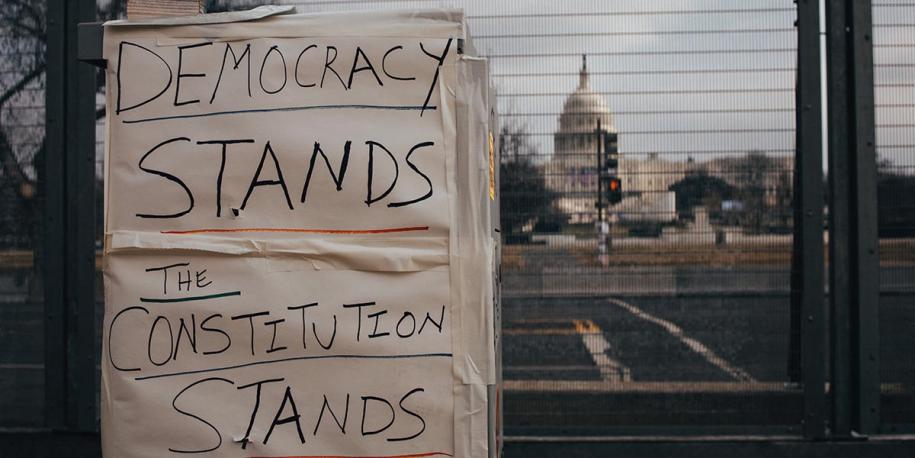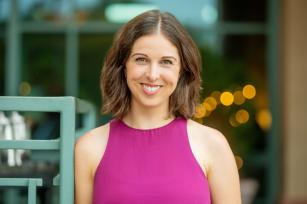
Breadcrumb
- Essential Partners
- Our Impact
- News and Notes
- Op/Ed: To stop another Jan. 6, we have to disagree
Op/Ed: To stop another Jan. 6, we have to disagree

This op/ed originally appeared in The Fulcrum on January 6, 2022.
During his 40-year career in the military, my father served under seven presidential administrations through countless policy decisions, three wars, innumerable budget votes and huge changes at every level of society. He says that what makes this country special is the fact that he swore an oath to serve not a person, a party or even the state, but to the Constitution of the United States — an oath to uphold the rights and institutions of democracy.
A strong democracy, though, needs more than free elections and enshrined civil rights. As the great American thinker John Dewey argued, democracy is not merely a political institution. It is a way of life. It’s a way of living with one another, being able to agree and disagree, embracing our different perspectives and individual histories.
“Unless democratic habits of thought and action are part of the fiber of a people,” he wrote, “political democracy is insecure. It can not stand in isolation. It must be buttressed by the presence of democratic methods in all social relationships.”
The violent insurrection that took place on Jan. 6, one year ago, was not just an attempt to halt the peaceful transfer of power. It represented a collective failure in the practice of our democracy, a warning that we have failed to keep alive those fundamental democratic methods in our social relationships.
And we know that Jan. 6 was not an isolated incident. Over a third of young people in America believe they’ll witness civil conflict in their lifetimes. That is astonishingly tragic. We need to make sure it is not a prediction. It shouldn’t be controversial to say we should work like hell to turn back the tide, repair our social fabric, heal our communities and snuff out the threat of political violence on a larger scale.
At Essential Partners, we equip communities, schools, congregations and institutions to build a more perfect union, one founded on trust and belonging. We envision an America where we can belong no matter our identities or beliefs, where we can be heard even if we’re in the minority, where we can vigorously disagree without violence.
If you want to be a part of real and lasting change for our country, we need to invest in the health of the communities where we live and work. We need to heal the broken relationships and mend the frayed trust. Here are three things you can do right away:
- Talk to the people you love about the issues that matter most with honesty, curiosity and compassion. Politics, religion and social issues can no longer be off limits. Extremism takes root in isolation and loneliness. Work within your trusted communities to make space for difficult conversations. Practice disagreeing with people you love and care for. Practice holding onto those relationships even when you differ. If you need support and tools, browse our resources, join us for a workshop or schedule a free consultation.
- Foster a culture around you of collective discernment and collaborative decision-making. In your workplaces, schools, congregations and institutions, invite people to think about what they need to be a lone voice, to share a minority view, to offer a perspective that may be hard for others to hear. Find out what people need to be resilient together, to care for themselves, and to disagree in ways that do not diminish a people’s experiences and identities. Our lives are intertwined. We share responsibility for the health of the whole community.
- Search for seeds of hope in your community. You cannot do the hard work of hope when your heart is depleted. Hope is vital. You can find it when neighbors of different faiths share food on a holiday. It’s there when people on opposite sides of the political divide enjoy a high school basketball game together. And when you lose hope, let someone else come forward, someone who can carry on while you replenish yourself.
You are not alone in this work. There are thousands of people around the country who are changing the way we talk about politics, shared values and identities. I am convinced that the bonds we forge in compassion will be stronger than the forces tearing this country apart.
